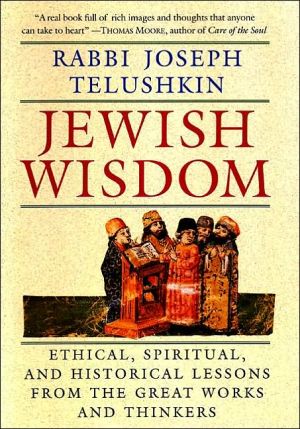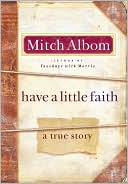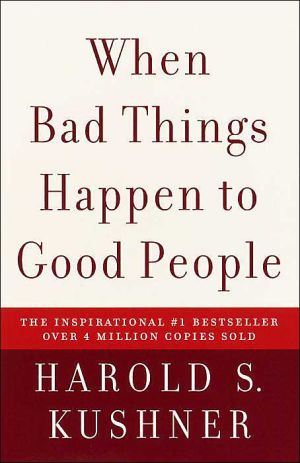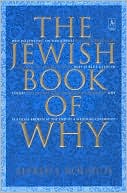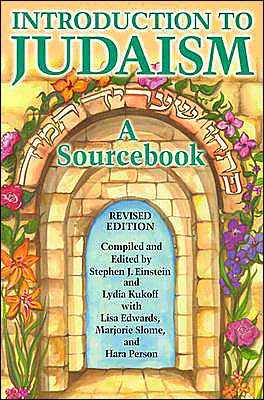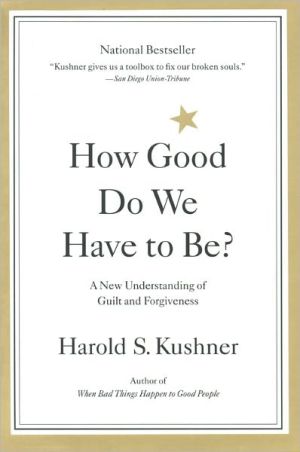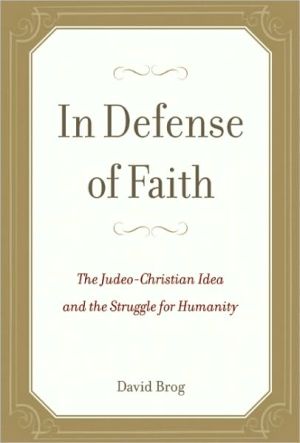Jewish Wisdom: Ethical, Spiritual, and Historical Lessons from the Great Works and Thinkers
When, if ever, should lying be permitted?\ If you've damaged a person's reputation unfairly, can the damage be undone?\ Is a person who sells weapons responsible for how those weapons are used?\ if the fetus is not a life, what is it? How, as an adult, can one carry out the command to honor one's parents when they make unreasonable demands?\ What are the nine biblical challenges a good person must meet?\ \ What do the great Jewish writings of the last 3,500 years tell us about these and all...
Search in google:
When, if ever, should lying be permitted? If you've damaged a person's reputation unfairly, can the damage be undone?Is a person who sells weapons responsible for how those weapons are used?if the fetus is not a life, what is it? How, as an adult, can one carry out the command to honor one's parents when they make unreasonable demands?What are the nine biblical challenges a good person must meet?What do the great Jewish writings of the last 3,500 years tell us about these and all other vital questions about our lives? Rabbi Joseph Telushkin has devoted his life to the search for answers within the teachings of Judaism. In Jewish Wisdom, Rabbi Telushkin, the author of the highly acclaimed Jewish Literacy, weaves together a tapestry of stories from the Bible and Talmud, and the insights of Jewish commentators and writers from Maimonides, Rashi, and Hillel to Einstein, Isaac Bashevis Singer, and Elie Wiesel. A richer source of crucial life lessons would be hard to imagine.Accompanying this extraordinary compilation is Teluslikins compelling commentary, which reveals how these texts continue to instruct and challenge Jewsand all people concerned with leading ethical livestoday As he discusses these texts, Rabbi Telushkin addresses issues of fundamental interest to modern readers: how to live with honesty and integrity in an often dishonest world; how to care for the sick and dying; how to teach children to respect both themselves and others, how to understand and confront such great tragedies as antisemitism. and the Holocaust; what God wants from humankind. Within Jewish Wisdom's ninety chapters the reader will find extended sections illuminating Jewish perspectives on sex, romance, and marriage, what kind of belief in God a Jew can have after the Holocaust, how to use language ethically, the conflicting views of the Bible and Talmud on the death penalty, and much, much more.Jewish Wisdom adds a new dimension to the many widely read contemporary books that retell the stones and reveal the essence of classic religious and secular literature. Possibly the most far-ranging volume of stories and quotations from Jewish texts, Jewish Wisdom will itself become a classic, a book that not only has the capacity to transform how you view the world, but one that well might change how you choose to live your life. Library Journal Rabbi Telushkin provides a lively companion volume to his popular Jewish Literacy (Morrow, 1991) in this collection of hundreds of influential quotations taken from the Jewish religious and secular canon dating from the Talmud to Isaac Singer and Amos Oz. Organized by theme-from prayer and the essence of Judaism to wealth, old age, and suffering-and accompanied by Telushkin's clear and insightful comments, the mostly brief quotations give an excellent overview of the ideas and texts "that have shaped Judaism's and the Jewish people's responses to the key issues in their lives and in their history." While Joseph Baron's Treasury of Jewish Quotations (Jason Aaronson, 1985), with its vast collection of 18,000 quotations, remains a better reference resource, this book makes a valuable and informative browsing item for both adults and young adults. Highly recommended.-Marcia Welsh, Guilford Free Lib., Ct.
Does Judaism Have an Essense?\ \ God's First Questions\ In the hour when an individual is brought before the heavenly court for judgment, the person is asked:\ \ Did you conduct your [business] affairs honestly?\ Did you set aside regular time for Torah study?\ Did you work at having children?\ Did you look forward to the world's redemption?\ \ — Babylonian Talmud, Shabbat 31a\ Note that the first question asked in heaven is not "Did you believe in God?" or "Did you observe all the rituals?" but "Were you honest in business?" Unfortunately, despite many texts that insist on the primacy of ethics, most Jews associate being religious solely with observing rituals. Throughout the Jewish community, when one asks, "Is so-and-so a religious Jew?" the response invariably is based on the person's observance of ritual laws: "He (or she) keeps kosher, and observes the Sabbath; he is religious" or "She does not keep kosher or observe the Sabbath; she is not religious."\ From such responses, one could easily conclude that Judaism regards ethical behavior as an "extracurricular activity," something desirable but not essential.\ The above passage unequivocally asserts that ethics is at Judaism's core; God's first concern is with a person's decency.\ The second question concerns Torah study, for Judaism teaches that through studying Torah, a person learns how to be fully moral (see Chapter 50), and how to be a part of the Jewish people.\ Third comes having children (those who are childless can adopt). Rabbi Irving Greenberg notes that raising a family fulfills the "covenantal obligation to pass onthe dream and work of perfecting the world for another generation."\ Fourth is hoping for and working toward this very perfection. The first three questions address "micro issues," matters that would be sufficient were Judaism exclusively addressed to the individual. But Jews also are part of a people and a broader world, and Judaism imposes upon the Jewish people the obligation to help bring about tikkun olam, the repair (or perfection) of the world. In a frequently quoted passage in the Ethics of the Fathers (2:21), Rabbi Tarfon teaches: "It is not your obligation to complete the task [of perfecting the world], but neither are you free to desist [from doing all you can]."\ One final thought about this talmudic passage: When a Jewish baby is born, the prayer offered expresses the hope that the child will be able to respond affirmatively to the first three questions:\ May the parents rear this child [son or daughter] to adulthood imbued with love of Torah and the performance of good deeds, and may they escort him [or her] to the wedding canopy.\ This prayer is recited in the synagogue (or at another naming ceremony) for a girl, and at the boy's circumcision. My friend Rabbi Irwin Kula notes that the fourth question is alluded to through the kisei eliyahu, the chair of Elijah, that is set up at every circumcision. In Jewish tradition, Elijah is the prophet who will usher in the world's redemption.\ Other Biblical and Rabbinic views of what matters most to God\ Both the Bible's prophets and the greatest figures of talmudic Judaism have also expressed the view that ethical behavior is God's central demand of human beings:\ He has told you, O man, what is good, and what the Lord requires of you:\ \ Only to do justice,\ to love goodness,\ and to walk modestly with your God.\ \ — Micah 6-8 (eighth century B.C.E.)\ Thus said the Lord: Let not the wise man glory in his wisdom; Let not the strong man glory in his strength; Let not the rich man glory in his riches. But only in this should one glory: In his earnest devotion to Me. For I the Lord act with kindness, justice and equity in the world; For in these I delight.\ — Jeremiah 9:22-23 (sixth century B.C.E.)\ Jeremiah, like Micah, enumerates three types of behavior that give God pleasure: in his case, kindness, justice, and equity.\ It happened that a certain heathen came before Shammai [he and Hiltel were the two leading rabbis of their age] and said to him, "Convert me to Judaism on condition that you teach me the whole Torah while I stand on one foot." Shammai chased him away with the builder's rod in his hand. When he came before Hillel, Hillel converted him and said, "What is hateful to you, do not do to your neighbor: this is the whole Torah. The rest is commentary; now go and study."\ — Babylonian Talmud, Sbabbat 31a (shortly before the beginning of the Common Era)\ That Hillel, one of the greatest figures of talmudic Judaism, was willing to convert a non-Jew on the basis of his accepting this ethical principle surely proves that ethical behavior constitutes Judaism's essence (in the same way that Protestant fundamentalists would insist on a would-be convert's acceptance of what they see as Christianity's essence, that Jesus Christ was the son of God who died to atone for mankind's sins). As Hillel remarks of this ethical principle, "this is the whole Torah." Significantly, Hillel instructs the man to start learning Torah, for only by studying this "commentary" will he be able to carry out Judaism's teachings.\ A century after Hillel, Rabbi Akiva, the greatest scholar and teacher of his age, reiterated the primacy of ethics in Judaism:\ "Love your neighbor as yourself" (Leviticus 19:18)-this is the major principle of the Torah.\ — Palestinian Talmud, Nedarim 9:4 (second century C.E.)\ While Micah, Jeremiah, Hillel, and Akiva were all concerned with finding the specific "way" that matters most to God, Rabbi Yochanan ben Zakkai was concerned with isolating the personality trait most apt to.guarantee that its practitioners lead a good life\ Said he [Rabbi Yochanan ben Zakkai] to them [his five preeminent students]: "Go out and see which is the best way a person should follow."
\ Library JournalRabbi Telushkin provides a lively companion volume to his popular Jewish Literacy (Morrow, 1991) in this collection of hundreds of influential quotations taken from the Jewish religious and secular canon dating from the Talmud to Isaac Singer and Amos Oz. Organized by theme-from prayer and the essence of Judaism to wealth, old age, and suffering-and accompanied by Telushkin's clear and insightful comments, the mostly brief quotations give an excellent overview of the ideas and texts "that have shaped Judaism's and the Jewish people's responses to the key issues in their lives and in their history." While Joseph Baron's Treasury of Jewish Quotations (Jason Aaronson, 1985), with its vast collection of 18,000 quotations, remains a better reference resource, this book makes a valuable and informative browsing item for both adults and young adults. Highly recommended.-Marcia Welsh, Guilford Free Lib., Ct.\ \ \ \ \ George CohenOrganized by subject, this is a collection of teachings and quotations from the Talmud, the Bible, rabbinical commentaries, and ancient and modern religious and secular writings. Writers include Elie Wiesel, Isaac Bashevis Singer, Hebrew poet Hayim Bialik, Cynthia Ozick, Emile Zola, Albert Einstein, Bruno Bettelheim, Gertrude Stein, Irving Howe, and Maimonides. In commentary that explains why these teachings remain meaningful to Jews today, Rabbi Telushkin addresses such issues as relationships between people; individuals and their quest for meaning; what God wants from us; the modern Jewish experience; and Jewish values as they confront the Holocaust, Zionism, and Israel. Telushkin's commentaries are especially helpful because of the myriad quotations from the Talmud. There are also anti-Semitic quotations from Pharaoh and Haman (the first two recorded anti-Semites), from Voltaire, Hitler, T. S. Eliot, Ezra Pound, H. L. Mencken, Gen. Ulysses Grant, Henry Ford, Charles Lindberg, and Louis Farrakhan, to name a few. But there is much wisdom here. Jews--and even non-Jews--will find the book a treasure.\ \
